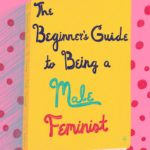The official Women's March website states: "The mission of Women’s March is to harness the political power of…
‘feminist’
Origin of the Word23 January 2019
In an era shaped by #metoo, #MuteRKelly, and increasing calls for LGBTQ representation, ‘feminism’ has become a popular topic of discussion. With much to the movement and its history, what relevance does it hold today?
Etymology of ‘Feminist’
The Oxford English Dictionary defines feminism — from the 19th Century French féminisme — as “the advocacy of women’s rights on the ground of the equality of the sexes.”
Feminists have charted changing societal values towards gender and sex, but to what avail? As our collective understanding of these terms continue to grow beyond the binary of male/female, heterosexual/homosexual, is feminism, as we know it, redundant in its current definition?
In the Western world, the OED description has become synonymous with the following: Emmeline Pankhurst and the British Women’s Suffrage movement, Betty Frieden’s 1963 The Feminine Mystique, and attitudes towards sex, education and career; as per the Second Wave Feminist movement in the United States. In the 90s, the sounds of Riot Grrrl among left-leaning American Gen Xers kick-started the Third Wave; which still maintained traditional feminist ideals, albeit not without criticism.

By and large, the British Suffrage movement, while advocating for women’s political agency, ignored the struggles of non-white, working-class women. In 2015, the Hollywood film Suffragette confirmed its troubled history when select actors were photographed wearing “I’d rather be a rebel than a slave” T-shirts; a quote from Pankhurst herself.
Speaking to The Telegraph, historian and author, Jad Adams, noted: “People talked about the emancipation of women. Their condition is nothing like slavery but in order to make the challenge more exciting and ramp up the feelings of disenfranchisement, women liked to compare their situation to that of slaves.”
This likening of sexism to racism continued to permeate ideals of the movement, which many self-identified feminists and activists have vehemently challenged, and consequently, called for a re-evaluating of feminism’s meaning.

Womanism: Gender and Race Politics
In a 1969 interview with Nova Magazine, Yoko Ono famously stated, “woman is the nigger of the world,” later released as a single on the album Some Time in New York City with her husband, John Lennon.
In 1978, Patti Smith released “Rock N Roll Nigger,” in which she likened her life as a “black sheep” to that of the term “nigger.” We can only assume the irony was lost on said artists, given the intended effect conveniently forgets one thing; black people are the black people of the world.
The correlation between race and gender has often been ignored within mainstream feminist organisations. In the aftermath of racial segregation in the US, many black feminists were failed by their white counterparts, who refused to note (or were simply unaware), that feminism could only advance upon recognition that white women and black women fought different struggles under the banner of gender equality.
Consequently, the women’s liberation movement of the ‘60s and ‘70s was heavily criticised as racist. In part, because black women’s contributions were fronted by the face of white activists, but also due to socio-economic factors not being taken into consideration. The fight for women’s rights was (and still is) a privilege that many working-class women of colour could/can not afford.
Alice Walker’s 1979 short story “Coming Apart” is said to be the first introduction of the term ‘womanism’ into the Feminist-lexicon. Womanism – as an alternative to ‘feminism’ – sought to pinpoint the concerns of black women within the movement; later accommodating various sexualities other than hetero. Walker’s defiant stance on race as being integral to women’s advancement pushed for a re-focusing of women’s equality. The term has since been co-opted by non-black people of colour as well.

Gender Inclusion
While ‘womanism’ aimed to expose the racial gap within the feminist movement, womxn of colour who existed outside of the gender binary were also ignored. Trans women and gender fluid people were conveniently bypassed within feminist spaces in favour of heteronormative narratives.
The push for LGBTQ rights arguably deserves its own article, however, the rise of TERFs, (trans-exclusionary radical feminists) spotlighted why the second and third wave feminist movement needed further categorisation.
TERFs, a term still hotly debated as a slur, is a subset of radical feminism that argues trans women, should not identify as women (and consequently, should not identify as feminists either) given their biological assignment of ‘male’ at birth. This line of thinking promotes not only transmisogyny; denying transfolk of their rightful gender identity, but also misogynoir if the person in question is black. Thinkers such as Germaine Greer and Julie Bindel have served as prominent reminders why the anti-trans feminism movement is not only dangerous but a potential hindrance to gender equality for all.

That said, the TERF movement has also met some resistance. The likes of Andrea Dworkin, Travis Alabanza, FX’s Pose, and publications such as Into, have challenged pre-conceived ideas surrounding trans identity, all-while keeping matters inclusive, without pandering to quotas for diversity or racial representation.
These steps, as well as the acceptance of these advances, mark a radical shift for feminists and the movement alike. More importantly, it speaks to a more inclusive future in which varying gender markers combined with racial identities are the rule, not the exception.
__
Cake baked by Lemia Bodden at SÜSS/Sweet for YEOJA Mag. Photography by Stephanie Penelope. For more like this, check out our previous ‘Origin of the Word’ – slut.








